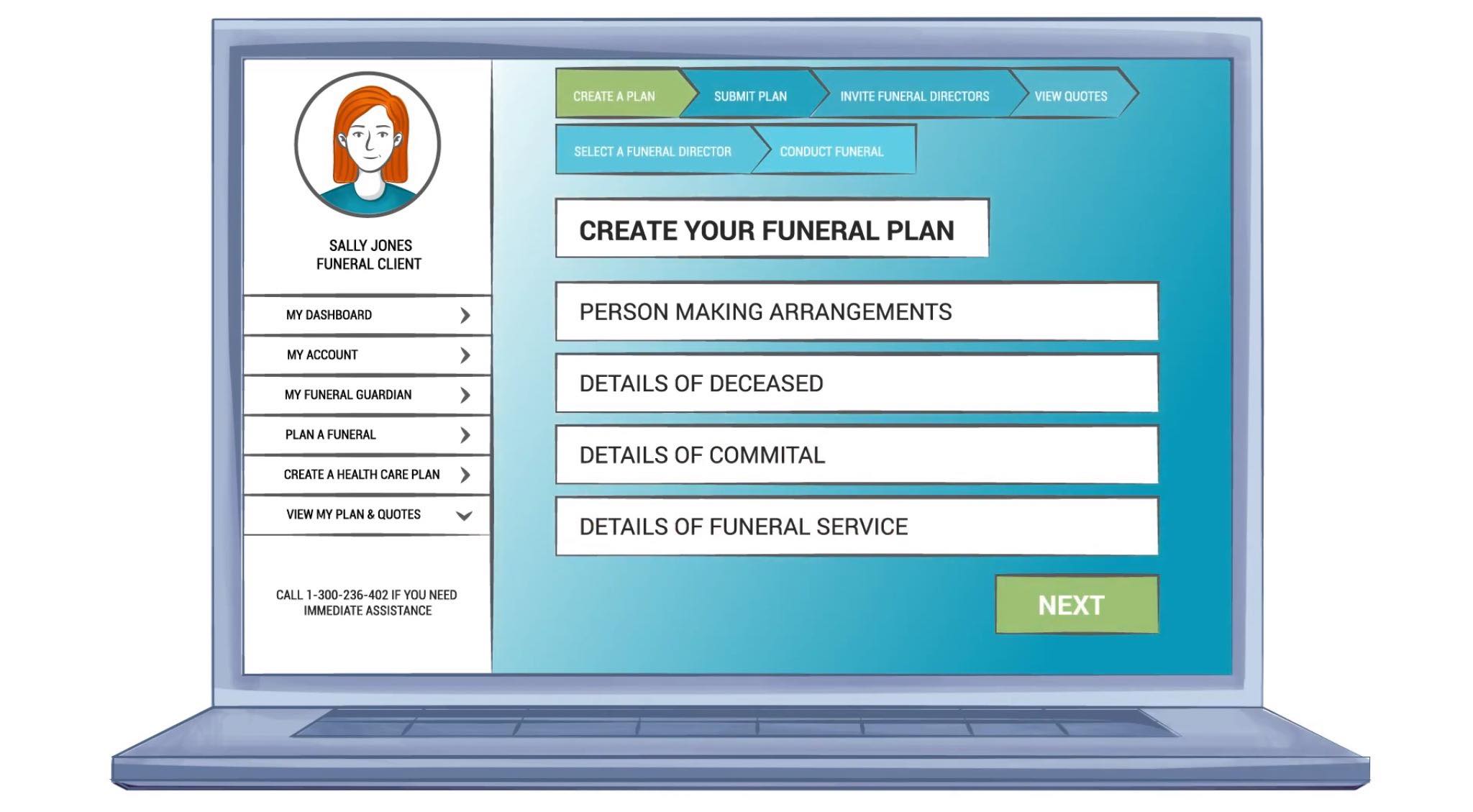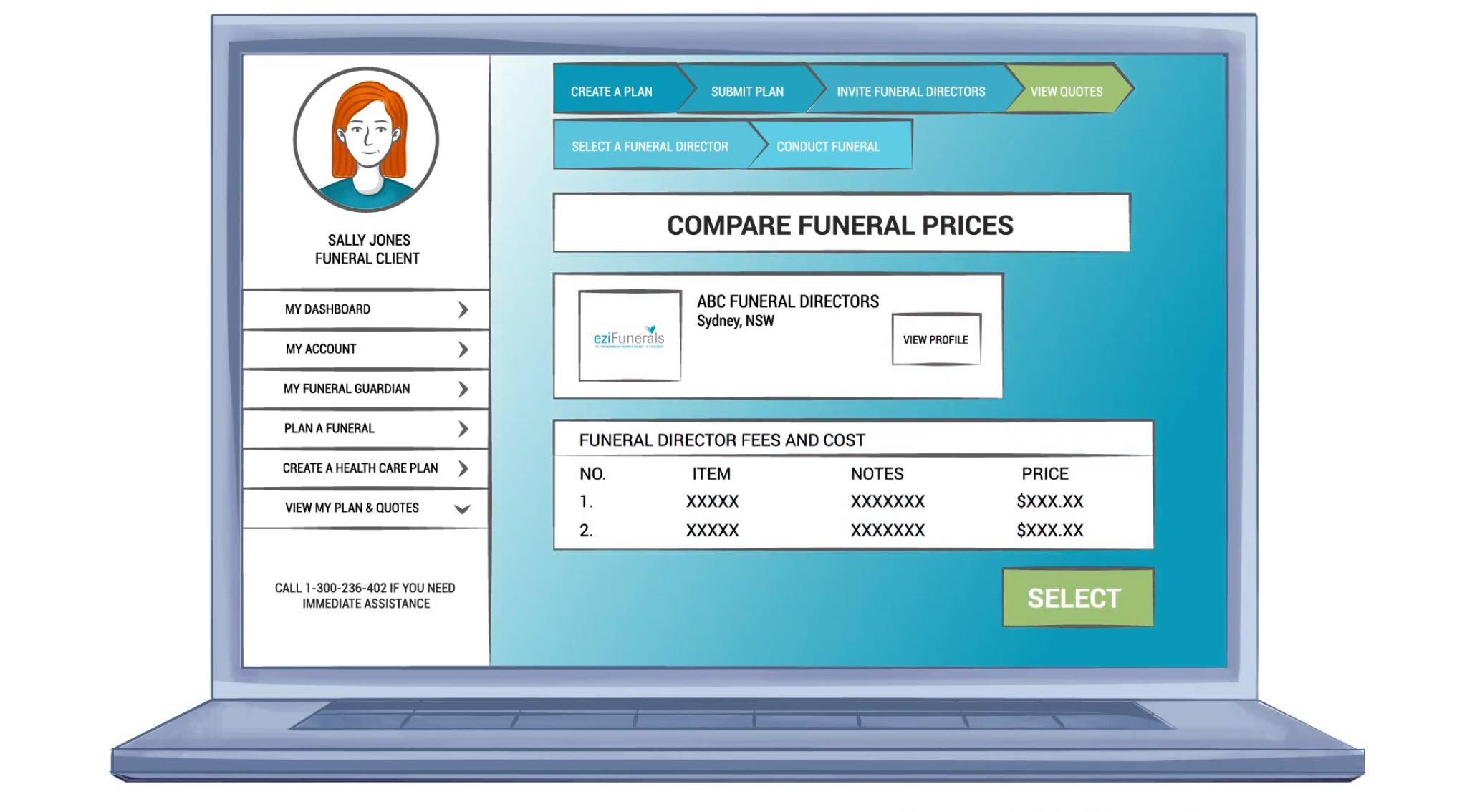
The death of a loved one is always a difficult and emotional time, and dealing with the organisational responsibilities that come with it can make things even harder. Hiring a funeral director is not a legal requirement, but it does make the arrangements flow more smoothly. You also don’t need to hold a funeral or cremation ceremony, it’s just something that most of us prefer to do to honour the passing of our loved ones.
It’s also important to know that the executor of the deceased person’s Will is legally responsible for arranging the funeral or laying your loved one to rest (if you don’t want a funeral). There are three other legal requirements that must be completed (regardless of whether you hold a funeral or not), as follows.
A death certificate is required by law
A person’s death must be declared by a doctor or coroner and a death certificate must be obtained and filed with the appropriate authorities in your state or territory (within seven days of the death). This must take place before your loved one is laid to rest. If the death occurs at home, your GP will most probably provide you with the death certificate.
If the death is unusual or suspicious however, a coroner may need to investigate the issue. In this case, you won’t receive your loved one or the death certificate until the investigation has been completed. You must also inform Centrelink of the death, because it’s illegal to continue to receive your loved one’s benefits following their death.
With the death certificate to hand and once you have notified Births, Deaths and Marriages, you are able to lay your loved one to rest. A funeral director will ask you for the death certificate and will make all these notifications for you, if you decide to go that route.
Legal requirements for transporting your loved one
To transport your loved one to their place of rest, whether via a funeral home or not, it’s a legal requirement that they are transported in a coffin or casket. You can make a coffin yourself, but whatever the source of the coffin or casket it must adhere to strict health laws. This means that it must be constructed in such a way that any emissions are contained inside the coffin or casket and if you decide on cremation, it must also be combustible. For cremation, you must also obtain a cremation certificate from the attending medical practitioner or coroner.
Legal requirements for laying your loved one to rest
Once you have the death certificate, you can lay your loved one to rest immediately, as there is no required waiting period. All burials must occur in an authorised cemetery and the necessary paperwork must be completed. If you decide on a cremation, the crematorium will give you a time to collect the ashes, which you can take home, inter in a crematorium or disperse as per your loved ones wishes.

About eziFunerals
eziFunerals supports individuals and families cope with end of life decisions, death and funerals. We are an independent, Australian-owned and operated company. We are not part of any other funeral company.
Our member Funeral Directors operate in Sydney, Melbourne, Brisbane, Perth, Adelaide and Australia wide. Thet are chosen for their knowledge, quality, service, personalisation and experience. They go above and beyond, and will take the time to support the family.
For more information or to make contact with a trusted Independent funeral director, call eziFunerals on 1300 236 402 or visit www.ezifunerals.com.au.





